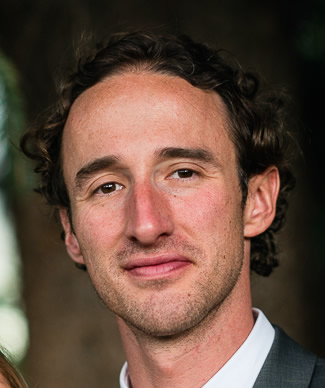By Rafaela Lacerda Santos
Posted: June 15, 2018
 You could say that Dr. Kris Brannan has grown up with RNA. After graduating from the University of Colorado at Boulder with a Bachelors of Science in Molecular, Cellular and Developmental Biology, Kris moved to the University of Colorado School of Medicine (in Denver) and obtained his Ph.D. studying the mechanism of transription termination by human RNA polymerase II under the mentorship of Dr. David Bentley. Kris is presently a post-doctoral fellow in the lab of Dr. Gene Yeo at the University of California San Diego working on novel RNA binding proteins (RBPs).
You could say that Dr. Kris Brannan has grown up with RNA. After graduating from the University of Colorado at Boulder with a Bachelors of Science in Molecular, Cellular and Developmental Biology, Kris moved to the University of Colorado School of Medicine (in Denver) and obtained his Ph.D. studying the mechanism of transription termination by human RNA polymerase II under the mentorship of Dr. David Bentley. Kris is presently a post-doctoral fellow in the lab of Dr. Gene Yeo at the University of California San Diego working on novel RNA binding proteins (RBPs).
When reflecting on his training, Kris commented that both Dr. Bentley and Dr. Yeo “are rare examples of investigators who are both field leaders and extremely dedicated mentors.” He said, “My thesis advisor, David Bentley, gave me an appreciation for exploring very mechanistic biochemical questions governing the regulation of gene expression (at the transcriptional level). Whereas Gene is showing me the value of using broader systems approaches to dissect the functional role of RNA-protein interactions.”
The broader approach and new focus on computational analysis has not been without obstacles. But Kris suggested that “facing challenges requires maintaining a growth mindset and a willingness to be in a constant state of learning.” He then added his favorite piece of advice for junior researchers: “Aim high and try to move out of your comfort zone.”
Kris’ research currently focuses on the biological function of a large set of predicted, non-canonical RBPs that are enriched for disease-relevant enzymes, nuclear pore complex components, and putative transcription factors. Characterization of these candidates is expected not only to expand the repertoire of human RNA-interacting proteins, but also to contribute to how we think about complex RNA regulatory networks. Moreover, because disruption of RNA metabolism is a hallmark of many human neurodegenerative diseases, understanding how RBPs regulate RNA fate will be crucial to uncovering the molecular mechanisms underlying important disease pathologies.
“Aim high and try to move out of your comfort zone.”
Not just a long-time member of the RNA Society, Kris has been involved in the organization as a member of the Junior Scientist Committee (since 2016)—a role that allows him to network with invited speakers and senior scientists within the Society, and to work alongside his fellow committee members. For him, belonging to the RNA Society is like “belonging to a giant extended family that includes all of my scientific best friends and heroes.” His favorite memory from an RNA Society meeting is from last year in Prague: Dr. Adrian Krainer’s Science and Society Lecture. Kris commented that “the demonstration that basic RNA research can lead to medical therapies that change lives was inspiring”. Moreover, “it was the first scientific talk I have attended that received a standing ovation—and everyone at the meeting seemed committed to redouble his or her research efforts.”
You can reach Dr. Kris Brannan via LinkedIn, Facebook, Academia.edu, or the Yeo Lab’s web page. When you contact him, be sure to ask why TERRA RNA is his favorite RNA and why he has a particular sentimental attachment to the name.
